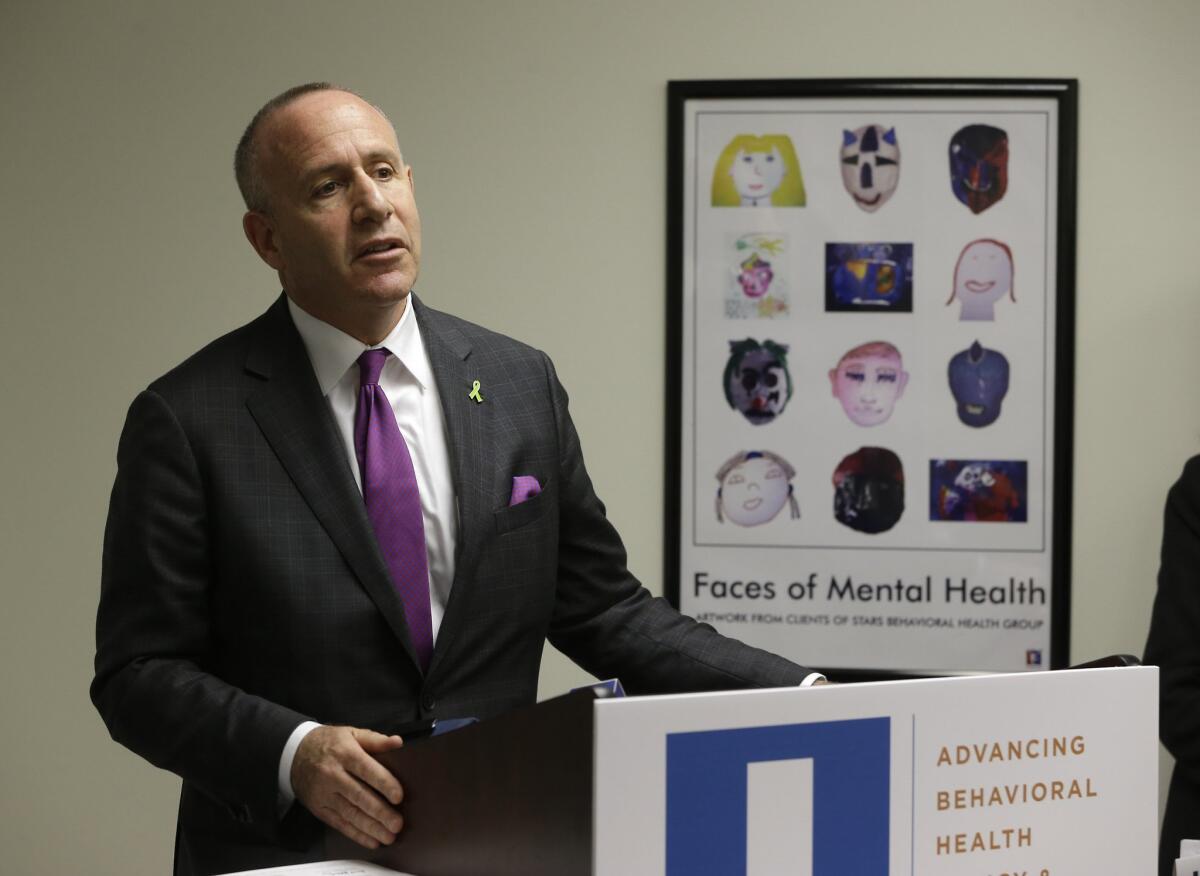Countering criticism, Steinberg says mental health law showing results

- Share via
Reporting from Sacramento — Seeking to quell criticism that his signature mental health initiative lacks accountability, former state Senate leader Darrell Steinberg pushed back Wednesday with a study he commissioned showing declines in homelessness, arrests and incarcerations for people receiving treatment under the law.
“The public has every right to know exactly how these dollars are being spent and what results are being attained because of this investment,” Steinberg said at a Wednesday news conference.
The report was compiled by the County Behavioral Directors Assn. of California and the Steinberg Institute for Advancing Behavioral Health Policy and Leadership, a nonprofit founded by the Sacramento Democrat after he was termed out of office last year.
Using data collected by the counties, researchers from the behavioral directors group tracked the effects of treatment for more than 35,000 seriously mentally ill individuals who qualified for certain services during the 2011-2012 fiscal year. Such services could include substance abuse treatment, housing subsidies and job training.
For those who participated in such programs — which account for 40% of the Mental Health Services Act funding — homelessness rates decreased by 47%, arrests declined by 82% and incarcerations were down by 27%, according to the report.
The law, approved by voters in 2004 as Proposition 63, funds mental health treatment by imposing a 1% tax on individual income higher than $1 million a year. The law has raised more than $13 billion for mental health services, according to the Little Hoover Commission, a state watchdog agency.
But it has been dogged by criticism that there is insufficient accounting of how the money is spent. Media reports noted spending on yoga and horseback riding classes, prompting public concern the money was being misused.
A 2013 state auditor report found there was “little oversight of counties’ implementation” of programs funded by the law, leading to few assurances that the money has been used “effectively and appropriately.”
In January, the Little Hoover Commission made similar findings that “antiquated state technologies and overlapping and sometimes unaccountable bureaucracies” were hampering efforts to evaluate the law’s efficacy.
Steinberg admitted “some frustration” that it has taken so long to undertake a data-driven evaluation of the law.
“Here’s what happens when we don’t take the bull by the horns and present data — real data — on a regular basis. It leaves open the playing field to the critics,” he said.
The former senator said he was confident that his report would answer some of the criticism.
“The public has the right to know, and we have not only the obligation but tremendous opportunity here to educate the public that mental illness does not have to be a life sentence of hopelessness,” he said.
Follow @melmason for more on California government and politics.
More to Read
Sign up for Essential California
The most important California stories and recommendations in your inbox every morning.
You may occasionally receive promotional content from the Los Angeles Times.














